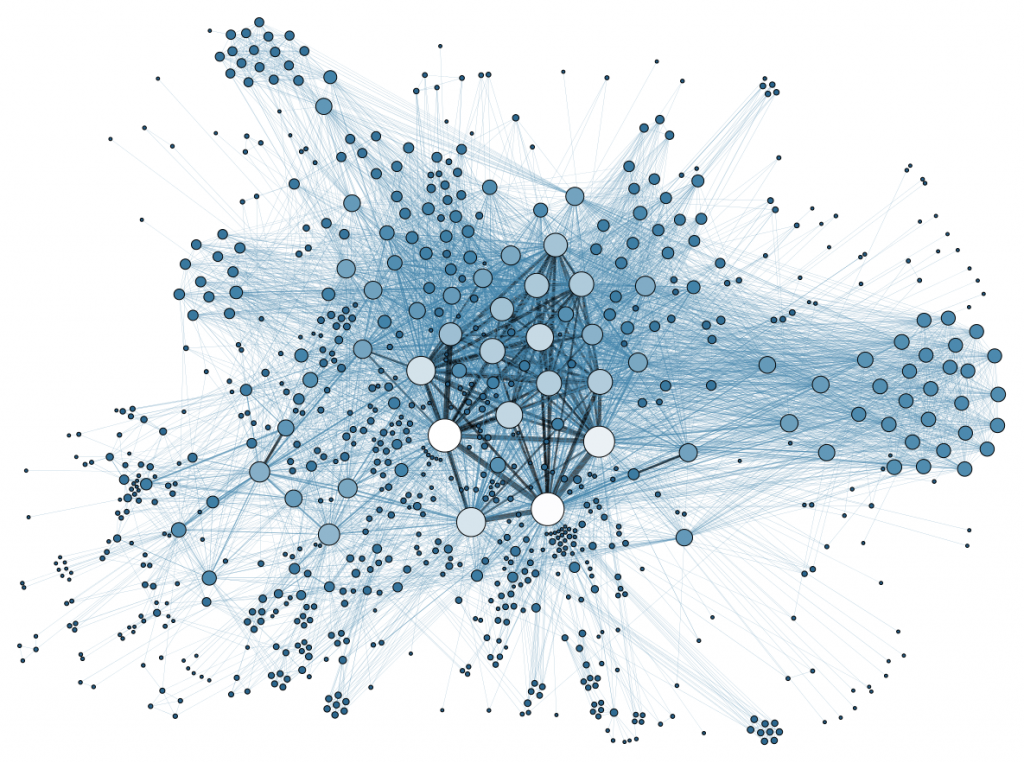Thoughtstorm
2016
Skills for Online Social Learning
 Informal online social learning is “of the learners”, “by the learners”, “for the learners”. Where technology is owned by the learners, we tend to assume that if they’re interacting on online forums, they must be learning. Is it this simple?
Informal online social learning is “of the learners”, “by the learners”, “for the learners”. Where technology is owned by the learners, we tend to assume that if they’re interacting on online forums, they must be learning. Is it this simple?
According to Marshal McLuhan, while technology augments certain aspects of our lives, it also truncates other facets. So as technology augments connections with people, does it reduce “depth”? As it multiplies access to information, does it lessen “focus”? When it increases the ability to contribute to a subject, does it reduce credibility of information? When it makes it easy for us to learn on our own, does it take away the concept of “linearity” in learning?
If technology affects these aspects, do we then need special skills while learning informally online? What could these skills be? Here’s a probable list:
Forming a Network
Connectivism theory suggests that “learning is a process of building networks”. To be able to learn online socially, we need to actively create a network of amateurs, experts, and enthusiasts who interact with us to create a whole that is larger than the sum of its parts. Learning to create a focused network that feeds into our knowledge base is a skill we need to develop.
In the tweet below, Professor Alec Couros reaches out to his network on Twitter to help his students learn the power of a network.

Going Beyond Lurking
Most interaction on social media sites is said to follow the 90-9-1 rule. According to this, 90% of the users on a social networking site are lurkers, 9% are contributors, and 1% are creators of content.While some learning researches believe that lurking itself is a large part of learning socially, we surely can learn more if contribute and create content.
Mindcasting Instead of Lifecasting
Lifecasting is sharing information about what we had for lunch, where we went vacationing and so on. If this is what we do with our network, chances are we’ll not learn much.
Mindcasting, a word coined by Jay Rosen, involves adding value, contributing original ideas and thoughts, sharing experiences, vocalizing tacit knowledge, stating the previously unnoticed obvious points, and so on.The more we learn to mindcast, the more we get a chance to clarify our own thoughts and to run them past a peer group.
Acquiring Knowledge Non-linearly
As Marshal McLuhan said, “People don’t actually read newspapers. They step into them every morning like a hot bath.” It doesn’t matter from where you enter the hot water bath or from where you exit it. Similarly when we dip into our network, we learn non-linearly with little structure. We need to learn to create our own structure and our own connections. Learning non-linearly is a special skill that today’s workforce needs to develop.
Cutting through Clutter—Filtering information
We receive a barrage of social information. Not all of it is relevant. One of the key skills is to quickly filter out the noise. Those who do this will be able to successfully use the online medium for learning informally. We need to learn to be active gatekeepers of our own learning feeds.
Discerning Correct Information
With the power to contribute to the knowledge pool of our peers, also comes the risk of picking up or sending out information that may not be accurate. We need to develop the awareness to cross check, and the ability to discern reliable resources from unreliable ones.
Avoiding Distraction and Dealing With Shortened Attention Spans
“We shape our technology, and thereafter our technology shapes us.” – Marshall McLuhan
We quote reducing attention spans of millennials as a pet peeve. It is an active result of the technology where reading lengthy articles has been rendered obsolete by short video clips, 140 characters and pithy feeds.
Not getting distracted by a friend’s birthday pictures may not sound like a skill, but it is one we will need to soon actively start developing. For example, being able to read through an article and analyse the depth of its contents is a skill that needs to be fiercely defended and developed.
Curating Content
Content sharing and curation is a natural result of online social learning. To use curation to find the correct information for the correct purpose is a skill that will help us develop a personalized ecosystem for learning.
Creating and Maintaining an Online Portfolio
Our online interactions are available for all to see. They become a social portfolio of who we are, and where we’re heading. It’s a skill to create a strong online portfolio, with appropriate representation of the people that we are.
Do you agree with this list? What other skills can you think of? Should we, as learning professionals, help build these skills, or should we let learners build these skills on their own?
Reproduced from: https://chat2lrn.wordpress.com/2015/11/
Cover Image: "Social Network Analysis Visualization" by Martin Grandjean - Own work : http://www.martingrandjean.ch/wp-content/uploads/2013/10/Graphe3.png. Licensed under CC BY-SA 3.0 via Commons - https://commons.wikimedia.org/wiki/File:Social_Network_Analysis_Visualization.png#/media/File:Social_Network_Analysis_Visualization.png
Contact us
Write to us and we'll get back to you soon. Or feel free to call us.
Phone: +91 99215 90789
Email: anchalmanocha@designstorm.in
Address: 103, Ilex Bliss, Veerbhadra Nagar, Baner,
Pune, Maharashtra, India 411 045.